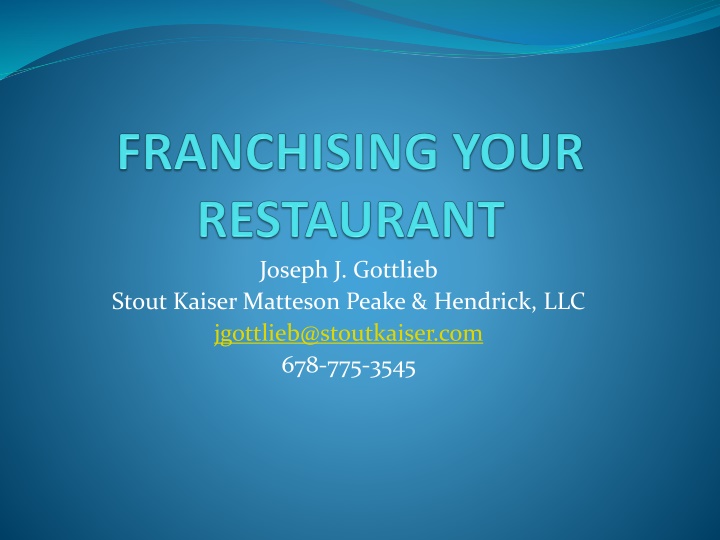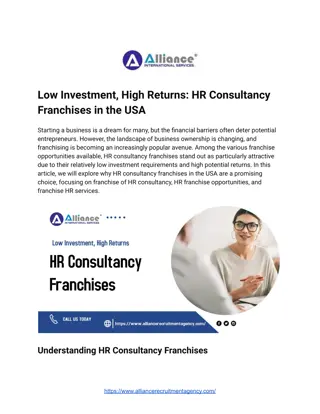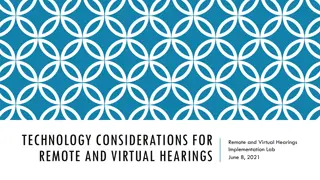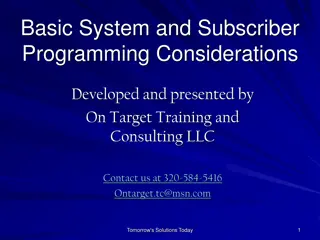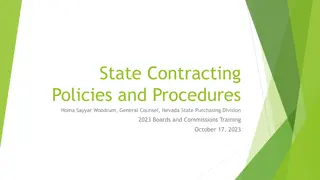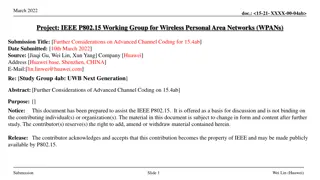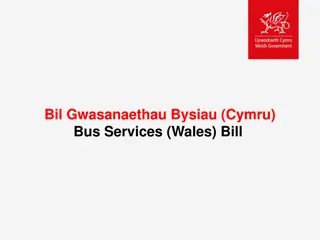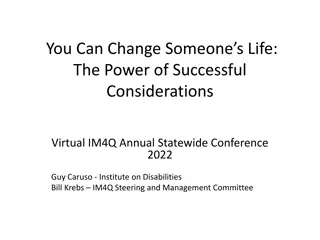Franchising: Key Concepts and Considerations
Franchising is a method of distributing goods or services where a franchisee licenses a trademark, pays an initial fee, and receives support from the franchisor. Regulations govern the offer and sale of franchises, requiring disclosure documents and trademark compliance. Assessing your restaurant's potential for franchising involves evaluating uniqueness, proof of concept, expansion history, and ROI. Financially, franchising enables rapid expansion with capital from franchisees, while owner expansion faces limitations in financing growth and involves consultant and attorney costs.
Download Presentation

Please find below an Image/Link to download the presentation.
The content on the website is provided AS IS for your information and personal use only. It may not be sold, licensed, or shared on other websites without obtaining consent from the author.If you encounter any issues during the download, it is possible that the publisher has removed the file from their server.
You are allowed to download the files provided on this website for personal or commercial use, subject to the condition that they are used lawfully. All files are the property of their respective owners.
The content on the website is provided AS IS for your information and personal use only. It may not be sold, licensed, or shared on other websites without obtaining consent from the author.
E N D
Presentation Transcript
Joseph J. Gottlieb Stout Kaiser Matteson Peake & Hendrick, LLC jgottlieb@stoutkaiser.com 678-775-3545
What is Franchising? A method for the distribution of goods or services. Elements of a Franchise License of a Trademark ; Payment of an Initial Fee; Franchisor provides substantial support or marketing plan or the existence of a Community of Interest between Franchisor and Franchisee.
Quick Franchise Facts Approximately 760,000 Franchised Businesses in U.S. 19 Million Americans employed in Franchised Businesses. Over 75 industries represented. Restaurants are the largest single sector represented.
Regulation of Franchising The Offer and Sale of Franchises is Regulated by Federal and State law. Franchise Disclosure Document FDD must be provided to prospects at least 14 days before the Franchise Agreement can be signed and money accepted. 14 states require registration of the FDD. Without a Federally Registered Trademark, must comply with state Business Opportunity Laws.
Is Your Restaurant a Good Candidate for Expansion Through Franchising? Can the concept be duplicated? Are there regional taste factors to consider? Will it sell everywhere? Is the concept teachable?
Is Your Restaurant a Good Candidate for Expansion Through Franchising? Is there an element of uniqueness? Do you have sufficient proof of concept? Multiple locations? Operating history? Will the business provide a good ROI?
Franchising vs. Owner Expansion Financial Considerations Franchising Franchisee provides capital for expansion. Can enable more rapid expansion. Franchisor incurs costs of developing infrastructure to support franchisees, i.e. marketing, franchisee support staff, training.
Franchising vs. Owner Expansion Financial Considerations Expansion of the brand by Owner will always be limited by ability to finance growth. Developing a franchise system involves costs of consultants and attorneys.
Franchising vs. Expansion by Owner Regulatory Issues Franchisee has burden of compliance with local laws and tax compliance. Franchisee has burden of compliance with HR and other employment issues. Franchisor must comply with detailed Federal and State Franchise laws and regulations. Includes disclosure of Franchisor s audited financial statements and other information.
Franchising vs. Expansion by Owner Financial Rewards Franchisee pays Initial Fee from $25K - $50K Franchisees typically pay a royalty based on GROSS REVENUE. Average range 5 7% Franchisors give up larger portion of profit, but have less downside risk from operational problems. Franchisors may not realize profit for several years.
Franchising vs. Owner Expansion Other Considerations Franchisee has better knowledge of local market. Franchisee has skin in the game and more highly motivated than an employee
Franchising vs. Owner Expansion Other Considerations Franchisor loses a certain amount of control. Franchisor can control ultimate product or service. Cannot micro-manage. Joint employee exposure NLRB. Difficult to find good franchisees. Start-up franchises may be difficult to sell.
Issues Specific to Restaurant Franchises Heavy Franchisee Reliance on Franchisor Menu Development and Changes. Sourcing of Product. Proprietary Ingredients and Recipes.
Issues Specific to Restaurant Franchises Choosing your Franchisees Brick and Mortar, Food Truck, Alternate Venues?
Do You Really Want to Be a Franchisor? Running a franchise system is a different business. Legal compliance. Must establish System Standards in an Operations Manual the How-To Guide for the Franchisees.
Do You Really Want to be a Franchisor? Must build an infrastructure to support franchisees. Branding and internet presence. Cost of attorneys and consultants could easily exceed $150,000. Return on investment may be slow.
Other Options Joint Ventures: Not a franchise but typical partnership problems can arise, i.e. division of responsibilities, disengagement, etc. Licensing Can be done on a One-Off basis, but may be deemed a franchise or Business Opportunity under state law.
